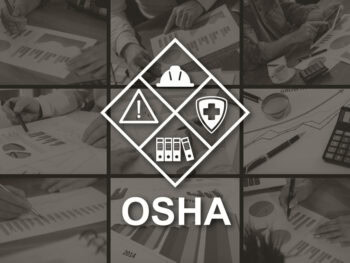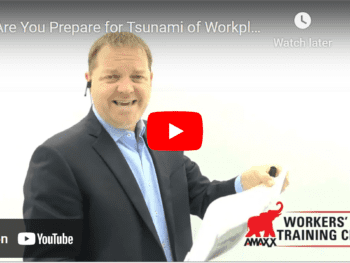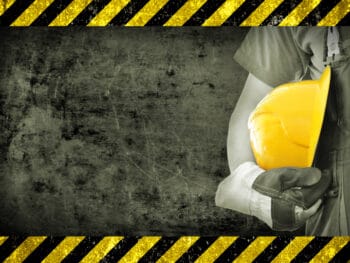This past week there was a report in the news of seven workers who were hospitalized in Louisiana for vomiting, nausea and headaches after working on a boat trying to contain the Gulf of Mexico oil spill. While all seven workers were released from the hospital, government officials pulled 125 boats from the area where the seven people had been working until an assessment of the safety of the situation could be completed.
A spokesman for British Petroleum (BP) stated they were providing protective equipment to the workers. Boots, hardhats, protective glasses and protective suits were being provided to the workers when needed. BP was also running air quality test and checking for irritant exposures.
One news account indicated the sick workers would be covered by workers' compensation. Not exactly. The Louisiana workers' compensation statutes do not apply to injured workers who are on a boat (“vessel”) working in the Gulf of Mexico. These injured boat workers or any seaman would be covered by a federal law known as the Jones Act.
Coverage under the Jones Act covers “vessels” which can include:
1. ships
2. boats
3. barges
4. moored casino boats
5. helicopters (transporting seamen to or from an offshore vessel)
6. offshore oil rigs (the workers who were injured or killed when the BP oil rig exploded will be covered under the Jones Act)
A seaman is defined as any one employed on a vessel but excludes scientific personnel, sailing school instructors and sailing school students.
The Jones Act limits the time to bring a claim to three years from the date of the accident. The seaman must be a United States citizen or a permanent resident alien. While the Jones Act covered the workers on the BP offshore oil rig when it exploded, the Jones Act excludes the BP employees who did the drilling, mapping, surveying, diving, pipe-laying, maintaining, repairing and constructing of the oil rig before it was put into service.
The Jones Act resembles workers' compensation in that it pays for both medical care and some indemnity benefits while the employee recovers from his injury or occupational illness. It differs significantly from work comp by not being an exclusive remedy for work related injuries or illnesses.
The seven injured boat workers, regardless of who is at fault for their illness, have the legal right to what is referred to in the Jones Act as “maintenance and cure”– indemnity and medical benefits. “Maintenance” is not the 66% of the average weekly wage workers in most states received. It is a “daily living allowance” paid on a weekly basis. Of course when bureaucrats and congressmen write laws they forget to define terms like what a daily living allowance is.
“Maintenance” was originally intended to cover the cost of room and board while the seaman was ashore recovering from his injury. For a long time employers would pay as little as $10 to $40 per day and some employers still try to pay that amount. This has resulted in the courts getting involved and broadening the definition of maintenance to include the actual cost of basic necessities including rent, utilities, transportation cost and food. Employers and seamen still get into disagreements as to what the “maintenance” amount should be resulting in a bonanza for attorneys.
“Cure” is the requirement that the employer pay for all necessary medical care for the seaman including physician services, hospitalization, rehabilitation services and related medical expense until the seaman reaches maximum medical improvement.
Under the Jones Act the obligation to provide “maintenance and cure” ends when the seaman reaches maximum medical improvement. There is no obligation on the employer to pay for permanent partial disability, or permanent total disability, or vocational rehabilitation even if the seaman is unable to return to work. However, under the Jones Act, the injured seaman can file suit for past and future lost wages, disability indemnification, vocational rehabilitation, and pain and suffering.
If the seaman elects to file suit against the boat owner, the handling of the claim under the Jones Act is much more like the handling of a liability claim than it is like the handling of a workers’ comp claim. For the injured seaman to prevail in his lawsuit, he must be able to show either negligence on the part of the employer or be able to show the vessel was unseaworthy.
This is the key difference between work comp claims and Jones Act claims. If the employee/seaman is negligent and responsible for his own injuries, the employee is unable to recover from the employer. Of course a good plaintiff lawyer will not let a little thing like a lack of negligence stop him from filing a lawsuit. The way around the employer's defense of “no negligence” is to claim the vessel was unseaworthy.
For a vessel to be seaworthy it has to be reasonably fit for it intended use (shrimp boats are probably not seaworthy as their intended use is not to clean up oil spills). The seaworthy vessel must have the appropriate equipment and safety gear, have a competent crew and be a safe place to work. The plaintiff lawyers will claim any of the following as reasons a vessel is not seaworthy:
1. Improper design of the vessel
2. Improper construction of the vessel
3. Improper maintenance of the vessel
4. Lack of elevators and proper lifting equipment
5. Worn out ropes or lines
6. Any mechanical malfunction
7. Slippery decks and stairways
8. Hatches, portholes or doors that do not fit
9. Worn cranes, winches, pulleys or hoists
The clean up of the gulf oil spill will produce a lot more Jones Act claims before the clean up is complete. It will also produce a lot of state workers' compensation claims and Longshoremen and Harbor Workers Act claims for the workers who are working on the shore cleaning up the oil spill. (workersxzcompxzkit)
Any employer who may be involved in any way in the oil spill clean up process needs to review with their broker their insurance coverage. The employers may need Jones Act coverage, state work comp coverage or Longshoremen and Harbor Workers Act coverage, or a combination of two types of coverage, or all three types of coverage to protect themselves from claims an injured employee could bring.
Author Robert Elliott, executive vice president, Amaxx Risks Solutions, Inc. has worked successfully for 20 years with many industries to reduce Workers’ Compensation costs, including airlines, healthcare, manufacturing, printing/publishing, pharmaceuticals, retail, hospitality and manufacturing. Contact him: Robert_Elliott@ReduceYourWorkersComp.com or 860-553-6604.
FREE WC IQ Test: http://www.workerscompkit.com/intro/
WC Books: http://www.reduceyourworkerscomp.com/workers-comp-books-manuals.php
WC Calculator: http://www.reduceyourworkerscomp.com/calculator.php
TD Calculator: http://www.reduceyourworkerscomp.com/transitional-duty-cost-calculator.php
Do not use this information without independent verification. All state laws vary. You should consult with your insurance broker or agent about workers' comp issues.
©2010 Amaxx Risk Solutions, Inc. All rights reserved under International Copyright Law. If you would like permission to reprint this material, contact Info@WorkersCompKit.com














